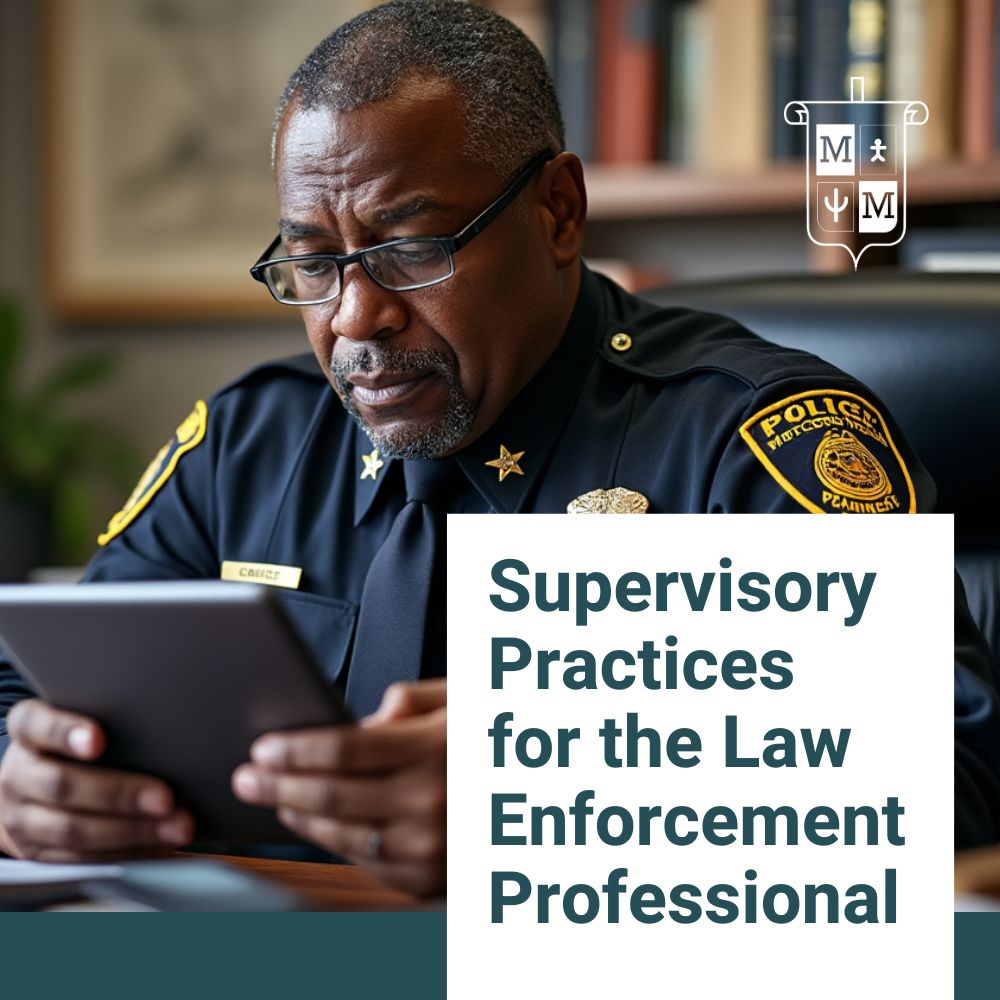Supervisory Practices for the
Law Enforcement Professional
A Comprehensive Guide for Law Enforcement Leaders – eBook
This book serves as a comprehensive guide for law enforcement professionals transitioning into supervisory roles, providing practical and foundational knowledge essential for effective leadership. Each chapter delves into a critical area of supervision, addressing the multifaceted responsibilities of leaders in law enforcement.
Together, the below chapters provide a thorough guide for current and aspiring law enforcement supervisors, emphasizing the importance of leadership, communication, ethics, and ongoing education in building a successful and effective police force.
Chapter Summaries
Chapter 1: You and Your Organization – Where Do You Fit?
Chapter 2: The Art of Communication
Focuses effective communication as the bedrock of interpersonal relationships and distinguishes exceptional supervisors from average ones within law enforcement, providing essential guidelines for honing these crucial skills.
Chapter 3: Ethics in Policing
Comprehensive overview of ethical responsibilities within law enforcement, emphasizing the crucial role of supervisors in fostering ethical conduct, maintaining loyalty, and promoting professional development among officers.
Chapter 4: The Psychology of Supervision
Explores the psychological aspects of supervisors’ pivotal role in fostering a culture of understanding, support, and open dialogue, mitigating potential frustrations and promoting a cohesive, productive team dynamic.
Chapter 5: Educating Today’s Supervisor
Chapter 6: Community Policing: Building Inclusive Communities
Chapter 7: Supervising Diverse Communities
Chapter 8: Proper Interview Techniques, Internal Investigations, and Associated Principles
Chapter 9: Counseling, Special Problems, and Techniques
Chapter 10: Discipline, A Supervisor’s Toughest Task
Chapter 11: Collective Bargaining and Grievance Procedures
Discusses the history, principles, and effective implementation indispensable for contemporary supervisors navigating the complexities of modern workplaces, particularly within unionized settings, as well as, processes involved in collective bargaining and grievance resolution, essential aspects of labor relations within law enforcement organizations.
Chapter 12: Personal Performance and Evaluation Ratings
Chapter 13: Critical Incidents, Deployments in Emergencies – Responsibilities
Addresses the responsibilities of supervisors during critical incidents and emergency deployments, emphasizing preparedness and effective decision-making.
Chapter 14: Leading Your Organization into the Future
Explores leadership strategies and visions for the future of law enforcement organizations, highlighting the role of proactive leadership in adapting to evolving challenges.
Each chapter contributes essential knowledge and skills necessary for effective policing and supervision within law enforcement agencies.
We are dedicated to delivering excellence in service across all projects and contracts with our clients. Leveraging our expertise, qualifications, and resources, we pledge to enthusiastically address our clients’ needs promptly and effectively.
Regardless of your organization's size or mission, Morris & McDaniel stands ready to collaborate as your ally, empowering you to build a capable and motivated team poised for success.
Start a Conversation - Fill out the form below or call (703) 836-3600



